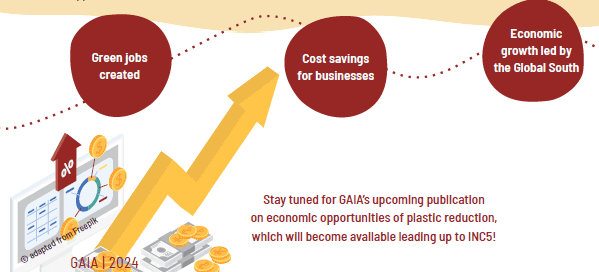Plastic Production Reduction: The Climate Imperative
- Climate -In advance of the fourth round of United Nations negotiations for an international plastics treaty in Ottawa April 23-29, Lawrence Berkeley National Laboratory (LBNL) has released a groundbreaking study revealing the enormous climate impact of plastic production.
In response to the report, Dr. Neil Tangri, Science and Policy Director at the Global Alliance for Incinerator Alternatives (GAIA), Dr. Jorge Emmanuel of Siliman University, Philippines, and Dr. Sam Adu-Kumi, former Director of the Chemicals Control and Management Centre of the Environmental Protection Agency (EPA), Ghana, have penned a policy brief contextualizing LBNL’s findings within the Paris Climate Agreement and global carbon budget, and how this research strengthens the mandate for a strong plastics treaty that dramatically cuts plastic production.
Key Takeaways:
- Plastics’ impact on the climate starts with extraction. To fully capture, measure, evaluate and address the impacts of plastic pollution, assessment and regulatory controls must consider the complete lifecycle, beginning with extraction.
- Growth in plastic production alone will doom international climate goals. Even if every other source of greenhouse gas emissions – transportation, electricity, agriculture, heavy industry, etc. – were to miraculously and completely decarbonize in 2024, at current growth rates, primary plastic production alone would completely consume the global carbon budget as early as 2060 and no later than 2083.
- Deep, rapid cuts in plastic production are required by the Paris Agreement. To avoid breaching the 1.5°C limit set by the Paris Agreement, primary plastic production must decrease by at least 12% to 17% per year, starting in 2024.




























